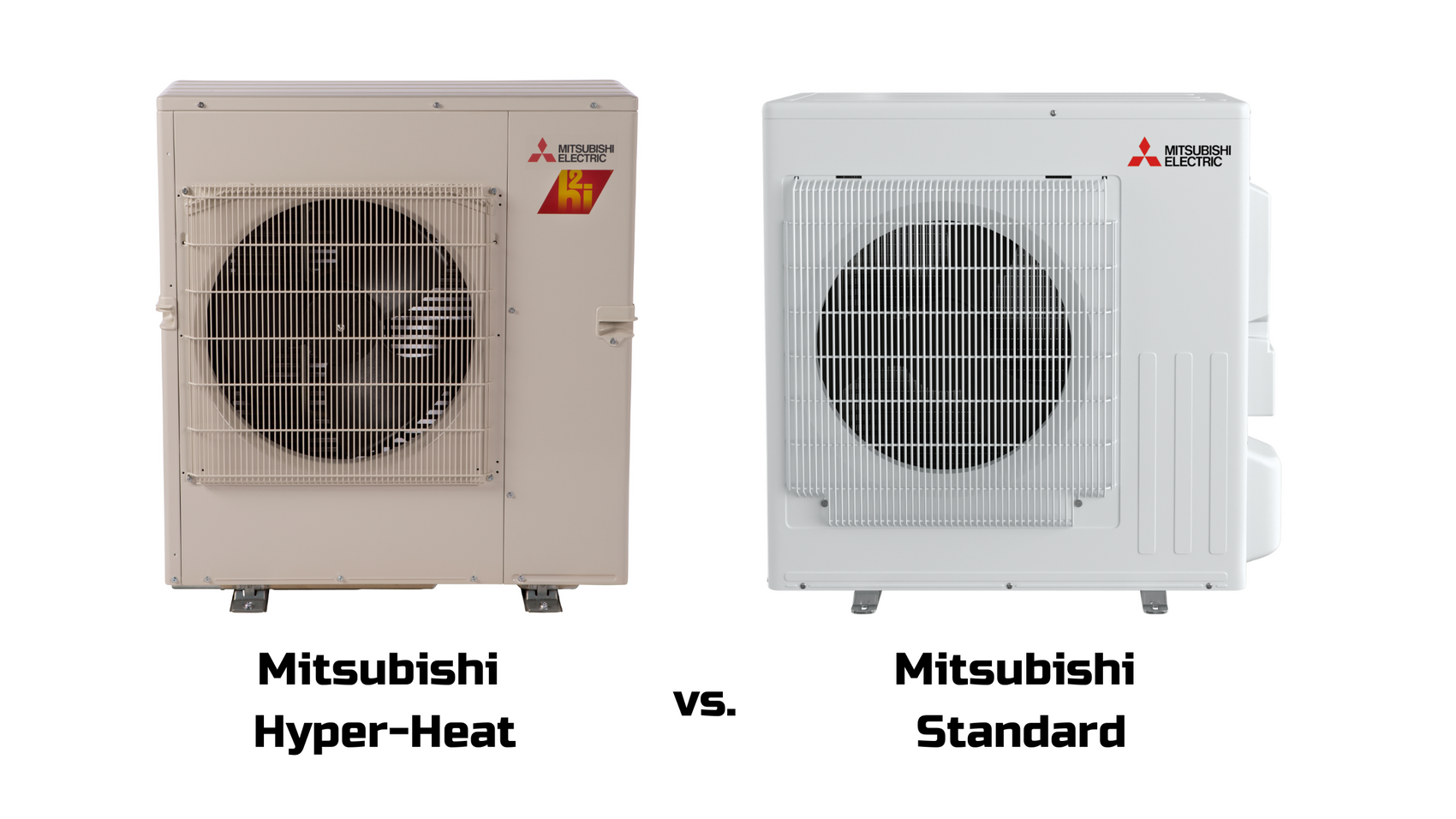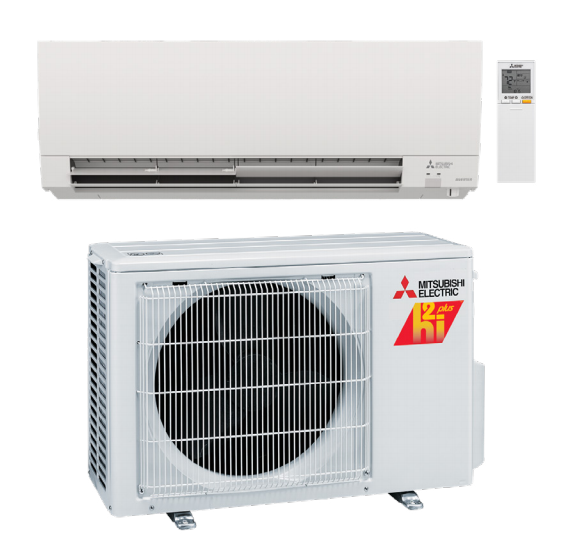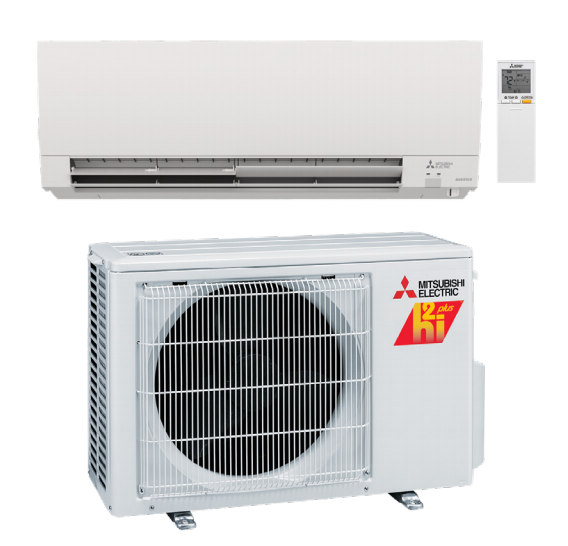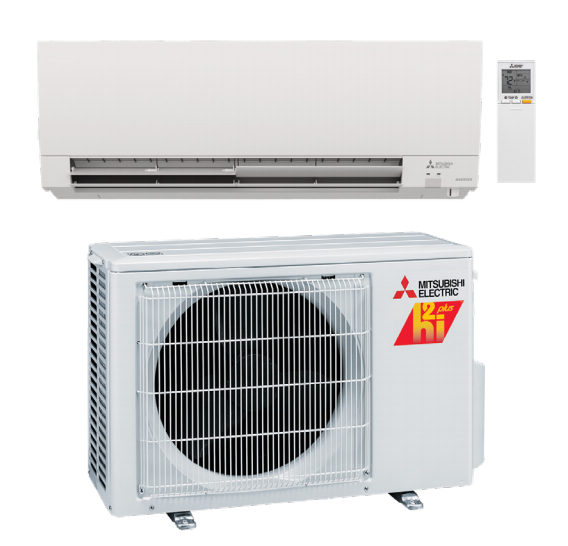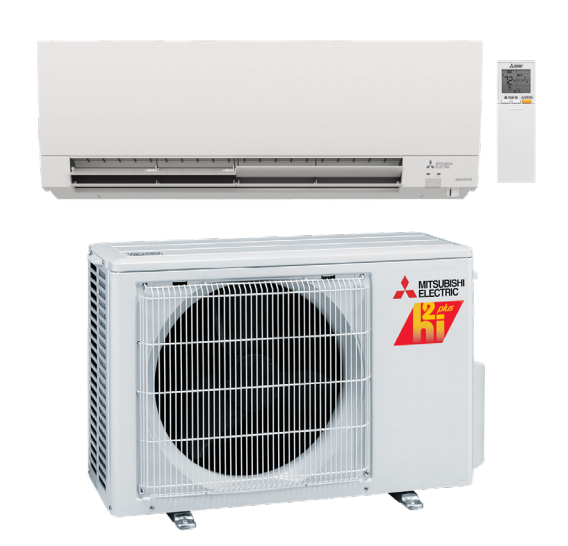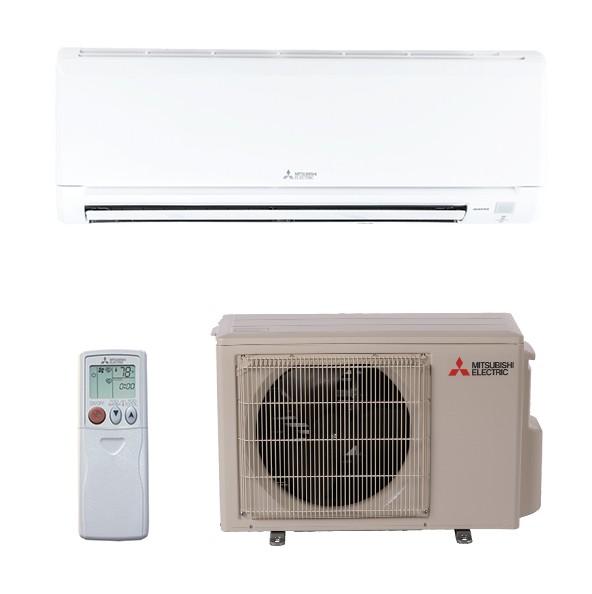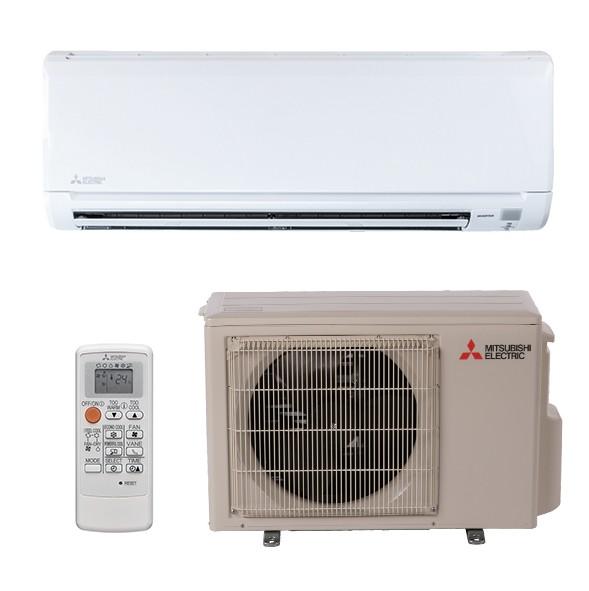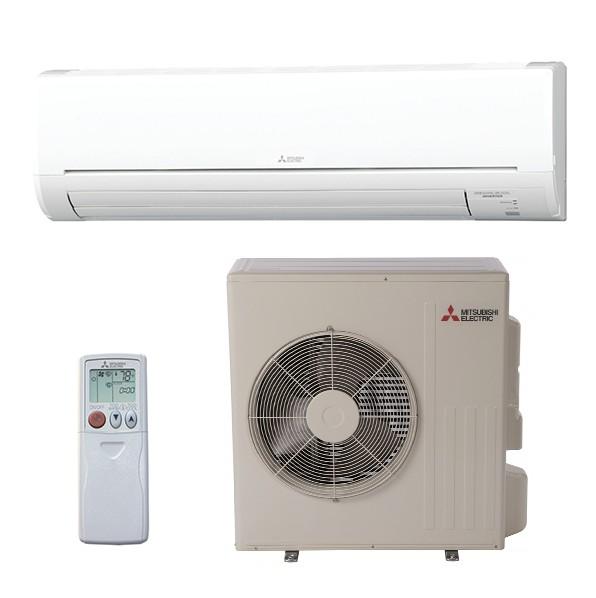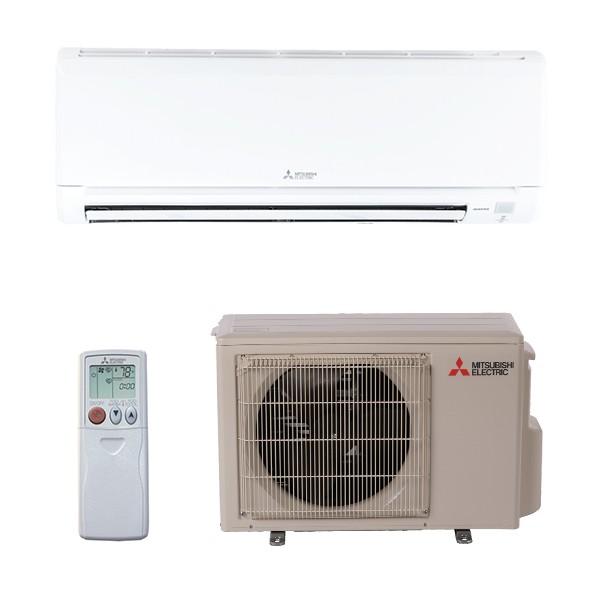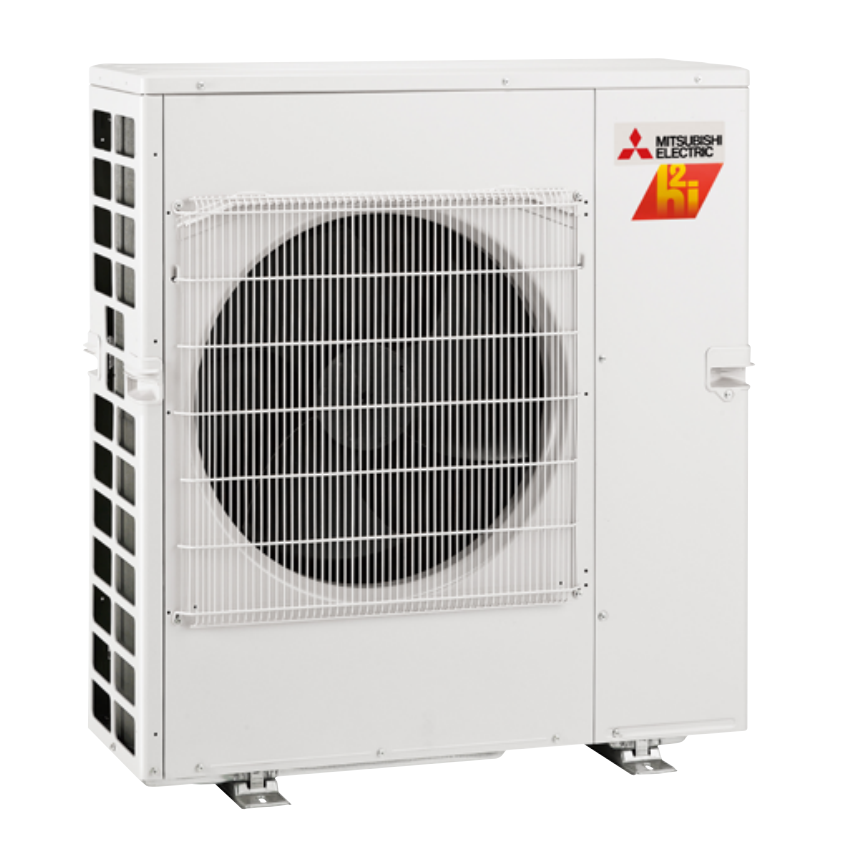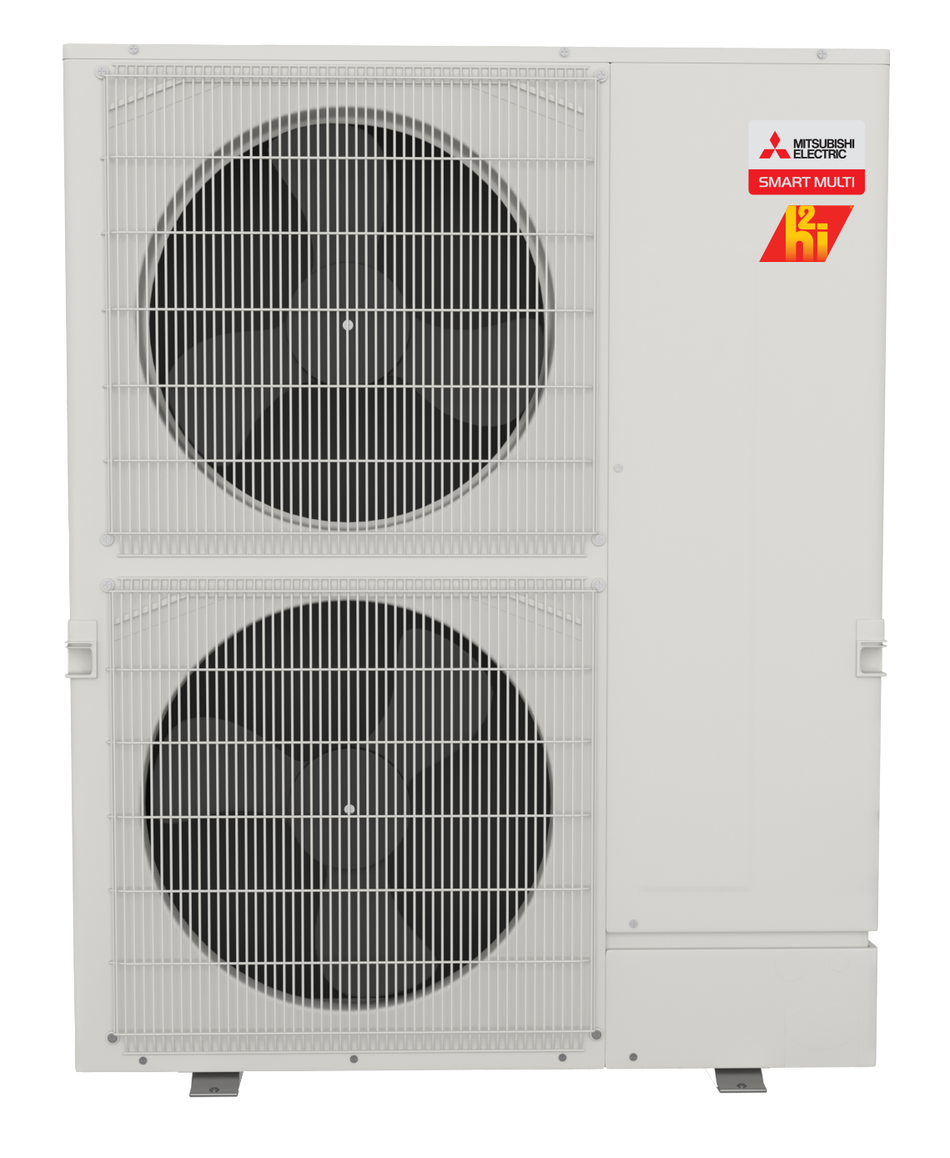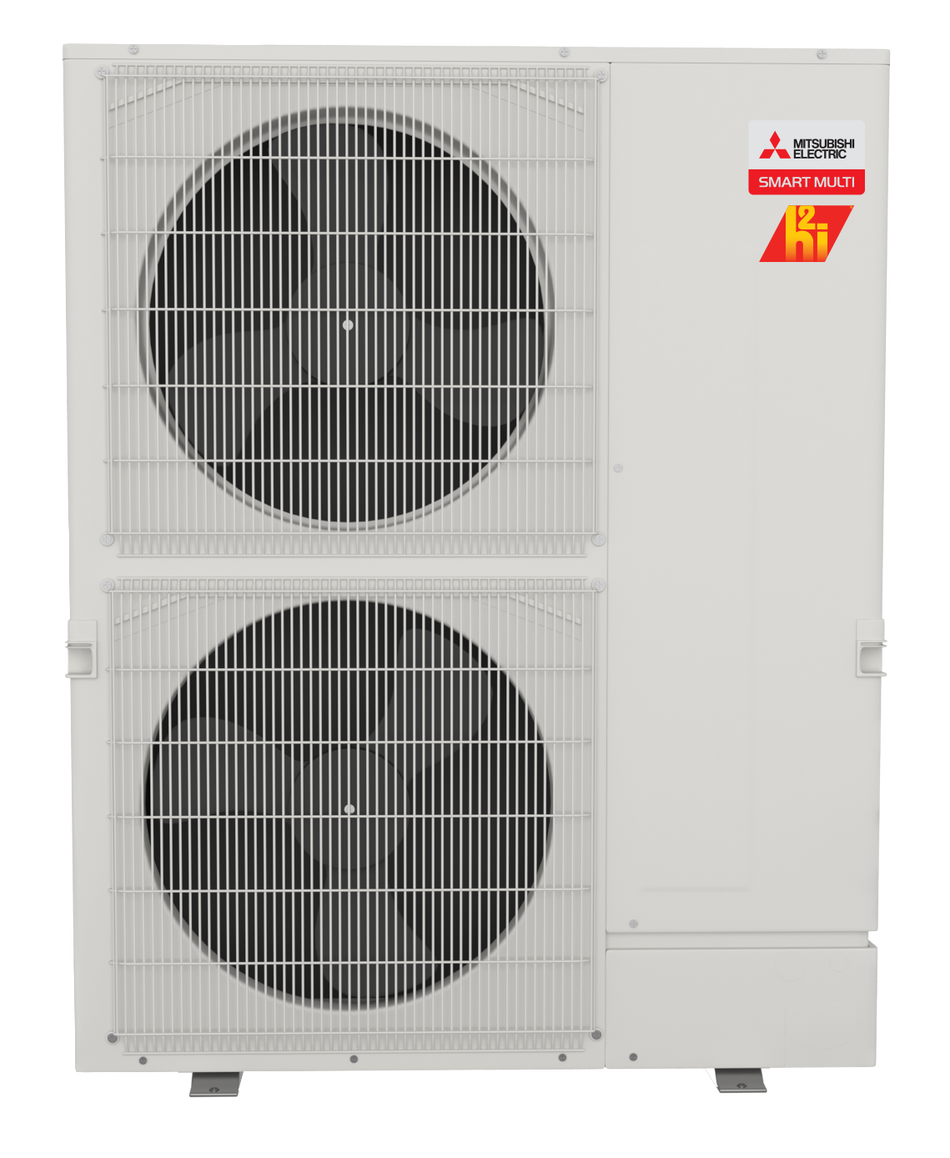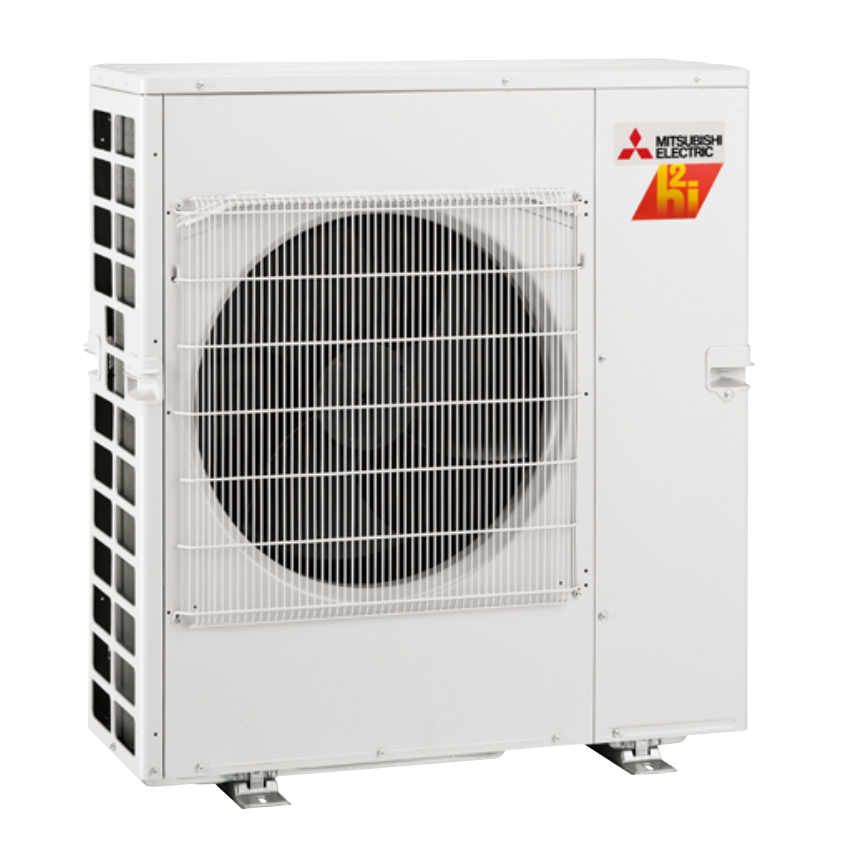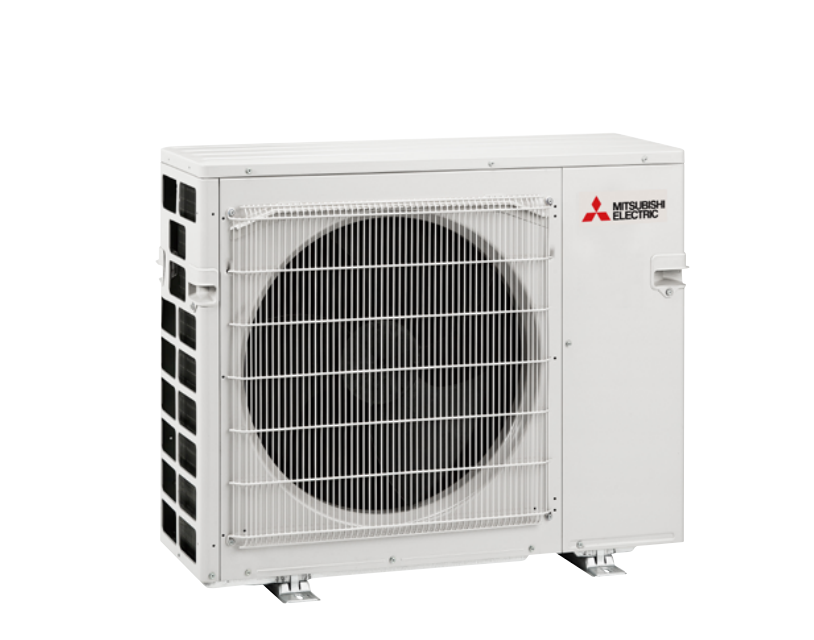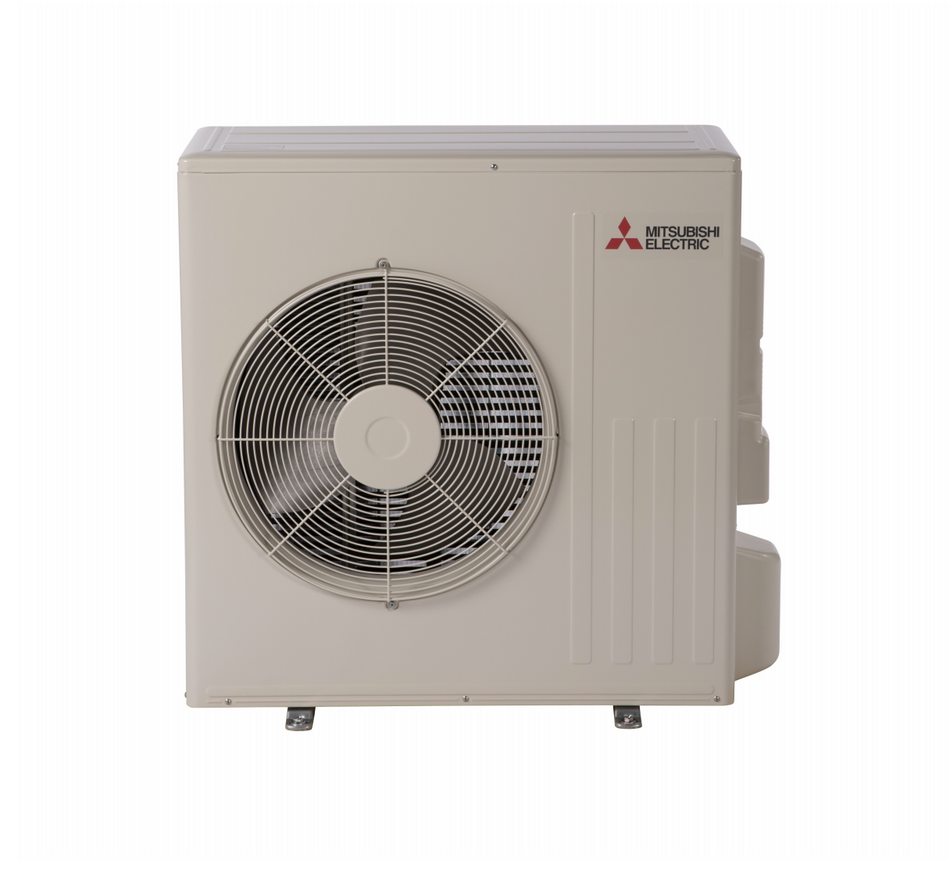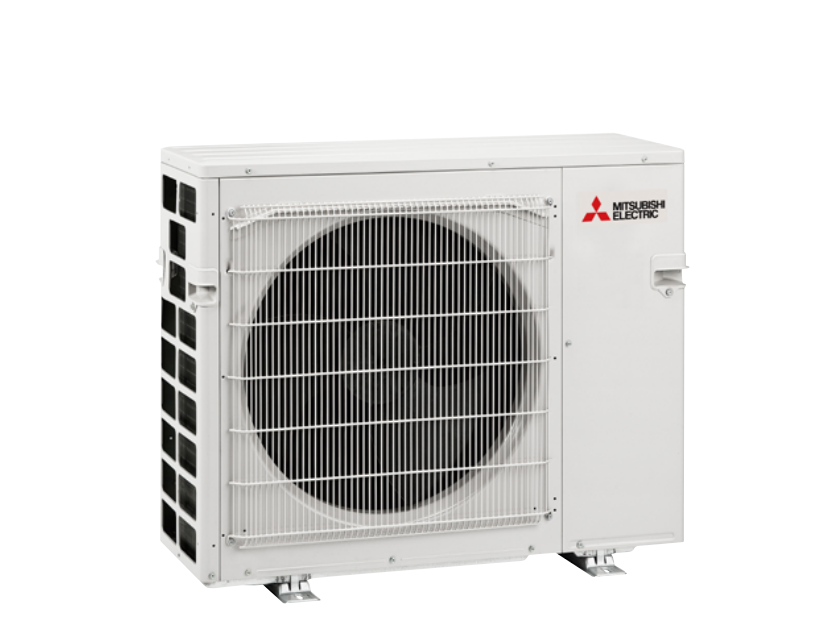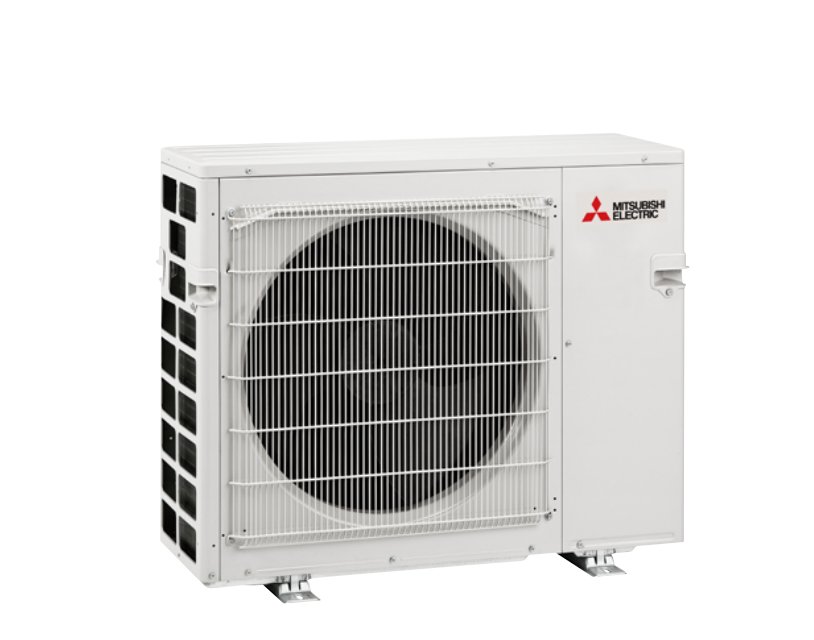Mitsubishi Hyper Heat Heat Pump vs. Mitsubishi Standard Heat Pump: Which Should I Choose?
Mitsubishi Electric mini splits have become increasingly popular in North America the past decade. Many home and business owners love Mitsubishi mini splits because of their high quality products, long lasting warranty, and great reputation. Many people know Mitsubishi mini splits because they've heard of a "Hyper Heating" function that they have. Today, this article will explain what "Hyper-Heat" is and will also help you decide whether you need it or whether you'd be just fine with their standard heat pump. Let's jump in!
Mitsubishi Heat Pump Applications:
Mitsubishi Electric makes 100% electric mini splits that can either run 1 unit to cover 1 specific space or multiple units to cover a whole house for example. No matter the style of system, the outdoor unit determines whether that system can just provide cooling, or whether it can provide both heating and cooling. Before we jump into that, let's define what a heat pump is in the first place.
What is a Heat Pump?
A heat pump is an electric powered heating and air conditioning component that essentially causes heat to be transferred from indoors to outdoors and vice versa (depending on heating or cooling) using a gas called refrigerant as its vehicle. Refrigerant travels through copper tubes (coil) that are ran from the outdoor heat pump to a unit that is installed inside. During the winter, the heat pump extracts any heat that it can from the outside air and uses the malleable refrigerant to carry the temperature to the indoor unit. The indoor unit then blows air over the heated refrigerant filled coil to provide heat in the room. The same process is reversed in the summer. Heat is extracted from the indoor air and moved to the outdoors. There are far more mechanics and physics involved in this process but this gives you an idea of how the technology works.
What Makes a Ductless Heat Pump Different than a Traditional Heat Pump?
Most home-owner are familiar with the term heat pump. They might not know how it works but they at least know that it's a way to condition their home by using electricity. Ductless mini splits do use heat pumps but they use also incorporate inverter technology to make them extremely efficient. Inverter technology allows the outdoor unit to regulate its operation so it minimizes unnecessary energy usage.
In order words, a mini split heat pump will modulate energy usage more frequently instead of using tons of energy to ramp the unit on and off periodically. We like to think of it like a semi truck that is driving down the highway. A truck that drives up to 60 mph and abruptly brakes down to 0 mph and then repeats this process again is bound to use more gas than a truck that drives up to 60 mph and frequently uses the gas pedal to maintain 60 mph.
What are Mitsubishi Standard Heat Pumps?
Now that we know how an inverter heat pump unit operates we can now look at the Mitsubishi Electric Standard Heat Pump under a magnifying glass. The Mitsubishi Standard Heat Pump differs from the Hyper Heat model because it performs similarly to how other inverter heat pumps operate. It begins to lose capacity the colder it gets. Typically, standard mini split inverter heat pumps can produce heating and cooling super efficiently in moderate temperatures. Once the temperature reaches the freezing point, inverter heat pumps become more inefficient the colder it gets. This rule holds true for Mitsubishi standard heat pumps as well. They can operate down to ~0 F without shutting off; however, they begin to suffer with producing heat the further below 32 F the temperature goes.
Let's take a Mitsubishi 24,000 BTU standard multi-zone outdoor heat pump unit as an example. At 47 F it can efficiently heat your home, producing up to 30,600 BTU, well above its rating. However, when the temperature drops to 5 F, the same 24,000 BTU outdoor unit will only produce 19,000 BTUs. This means your outdoor unit will be working its very hardest to only output 79% of what it's rated for.
If you were to exclude the cold climate performance factor, modern day standard inverter heat pumps, especially Mitsubishi heat pumps, are super efficient and quiet. Mitsubishi has engineered best-in-industry heat pumps that have a long mechanical life, are whisper quiet, and are extremely efficient. Other brands might boast higher efficiency ratings but suffer at other important things like longevity: Mitsubishi has found a way to balance it all.
What are Mitsubishi Hyper Heat Heat Pumps?
Mitsubishi Hyper Heat units are a subset of mini split inverter heat pumps that can provide heat even in the coldest climates. They are able to heat down to -13 F at 90% heating capacity, and can heat down to -5 F at 100% heating capacity. This means that a 24,000 BTU multi-zone outdoor heat pump unit is going to output 30,600 BTU at 47 F, and 25,000 BTU at 5 F. Much better numbers than the standard outdoor unit.
How can hyper-heat outdoor units heat in such cold temperatures? There's a lot of engineering behind this answer but here are some of the reasons:
- All hyper heat outdoor units are larger than their standard counterparts. Larger units mean larger coils that allow for more surface area to capture heat from the outside to be transferred through the compressor to the indoor unit.
- Hyper heat units also have an accumulator with a Capillary Tube and a 2 way Solenoid Valve: this adjusts the flow of refrigerant to increase pressure to then increase the temperature of discharge gas from the compressor going towards the indoor unit.
To put it simply - these features help the outdoor unit retain higher heats in colder temperatures to therefore transfer that heat to the indoor unit. It is impressive technology!
Differences Between The Two:
Let's take another example to compare the two types of outdoor units. We will look at MXZ-3C30NAHZ4 vs. the MXZ-3C30NA4 : two 30,000 BTU mutli-zone outdoor heat pump units. We will look at a few factors to be able to practically compare the two models.
Performance
We already mentioned that the Hyper Heat Outdoor Heat Pump Units perform much better in colder climates than the standard outdoor units but let's see how the two outdoor units stack up against each other within these performance categories.
Heat Capacity in Cold Climates (Non-Ducted Indoors)
|
|
MXZ-3C30NA4 Standard |
MXZ-3C30NAHZ4 Hyper Heat |
|
47 F |
36,000 BTU |
36,000 BTU |
|
17 F |
21,000 BTU |
28,600 BTU |
|
5 F |
19,800 BTU |
28,600 BTU |
| -13 F | NA | 26,400 BTU |
Quiet Operation
| MXZ-3C30NA4 Standard | MXZ-3C30NAHZ4 Hyper Heat | |
| Sound Pressure Level (Cooling) | 52 dB | 54 dB |
| Sound Pressure Level (Heating) | 56 dB | 58 dB |
Electrical Usage
| MXZ-3C30NA4 Standard | MXZ-3C30NAHZ4 Hyper Heat | |
| Recommended Breaker Size | 25 AMPS | 40 AMPS |
| Minimum Circuit Ampacity | 22.1 AMPS | 31.5 AMPS |
Efficiency
Another important factor to consider when comparing the two types of outdoor units are the efficiency ratings. This can be determined by a few metrics. Here are the definitions of the metrics:
- SEER2: ratio of cooling output divided by total energy used.
- EER2: ratio of cooling capacity divided by power input (standardized measurement)
- HSPF2: ratio of heating output divided by electricity used
- COP: relationship between power drawn from heat pump as heat compared to power given to the compressor
| * | MXZ-3C30NA4 Standard | MXZ-3C30NAHZ4 Hyper Heat |
| SEER2 | 19.0 | 18.0 |
| EER2 | 10.6 | 12.5 |
| HSPF2 | 10.0 | 10.0 |
| COP @ 47 F | 3.9 | 4.0 |
| COP @ 5 F | 1.87 | 1.95 |
| Energy Star Certified | No | Yes |
*when we have non-ducted indoor units connected to outdoors
Cost Difference
Here's where the rubber meets the road. Although cost of product doesn't tell the whole story, it does clarify the decision making process. Something to consider is the initial cost of purchasing the product vs. the cost of running both heat pumps in colder climates each year.
| MXZ-3C30NA4 Standard | MXZ-3C30NAHZ4 Hyper Heat | |
| Price (10/19/2023) | $2,918 | $3,797 |
This is what Got Ductless is currently selling these outdoor units for. These prices may fluctuate depending on where you buy this product and when but the percentage difference between the two models will most likely not change.
Installation Complexity
The installation process is nearly identical for both of these model numbers; however, something to note is that hyper heat models require a branch box starting at 3 ton 36,000 BTU multi-zone outdoor heat pumps while the standard multi-zone heat pumps only require a branch box starting at 4 ton 48,000 BTU multi-zone outdoor heat pumps.
Adding a branch box to a mini split installation isn't the end of the world but it does require professionals that know what they are doing. Experienced mini split professionals who have branch box experience tend to charge higher rates but prevent you from dealing with costly mistakes that could lead to the ruining your equipment.
Which One Should I Choose?
People that Choose Hyper Heat Typically.....
1. People that live in climates that experience temperatures that are consistently below 32 F. If there is a chance that temperatures will fall below or even come close to 5 F then you should choose hyper heat every single time. The price difference will be worth it.
2. People that do not have a secondary back up heating system such as a boiler system. Hyper heat gives you the comfort of knowing that even on the coldest days, your electric heat pump will give you all the heat you need to be comfortable without breaking the bank.
People that Choose a Mitsubishi Standard Heat Pump Typically...
1. People that live in rather moderate climates. If you live in a climate such as the southern mid-Atlantic, or the Pacific Northwest, you may experience colder temperatures but they won't be prolonged. Some people may choose not to spend the extra money on hyper heat if they think they won't spend the difference on their utility bills on those cold days each winter.
2. People that have a backup heating source such as a boiler or electric baseboards. If you are someone who kept their gas boiler for a rainy day, you may choose to opt out of hyper heat since you know you can turn on the boiler on the coldest days.
Conclusion
Mitsubishi makes incredible products. The decision to choose between a standard heat pump and a hyper heat outdoor heat pump is different for every home and business owner. It is important to compare each size outdoor unit side by side to compare all the factors we talked about today. Sometimes an energy star qualification can earn you an utility rebate that makes up the cost difference between the two models. If you have any questions, please call/chat/email us at Got Ductless and we can help guide you through the shopping process.


